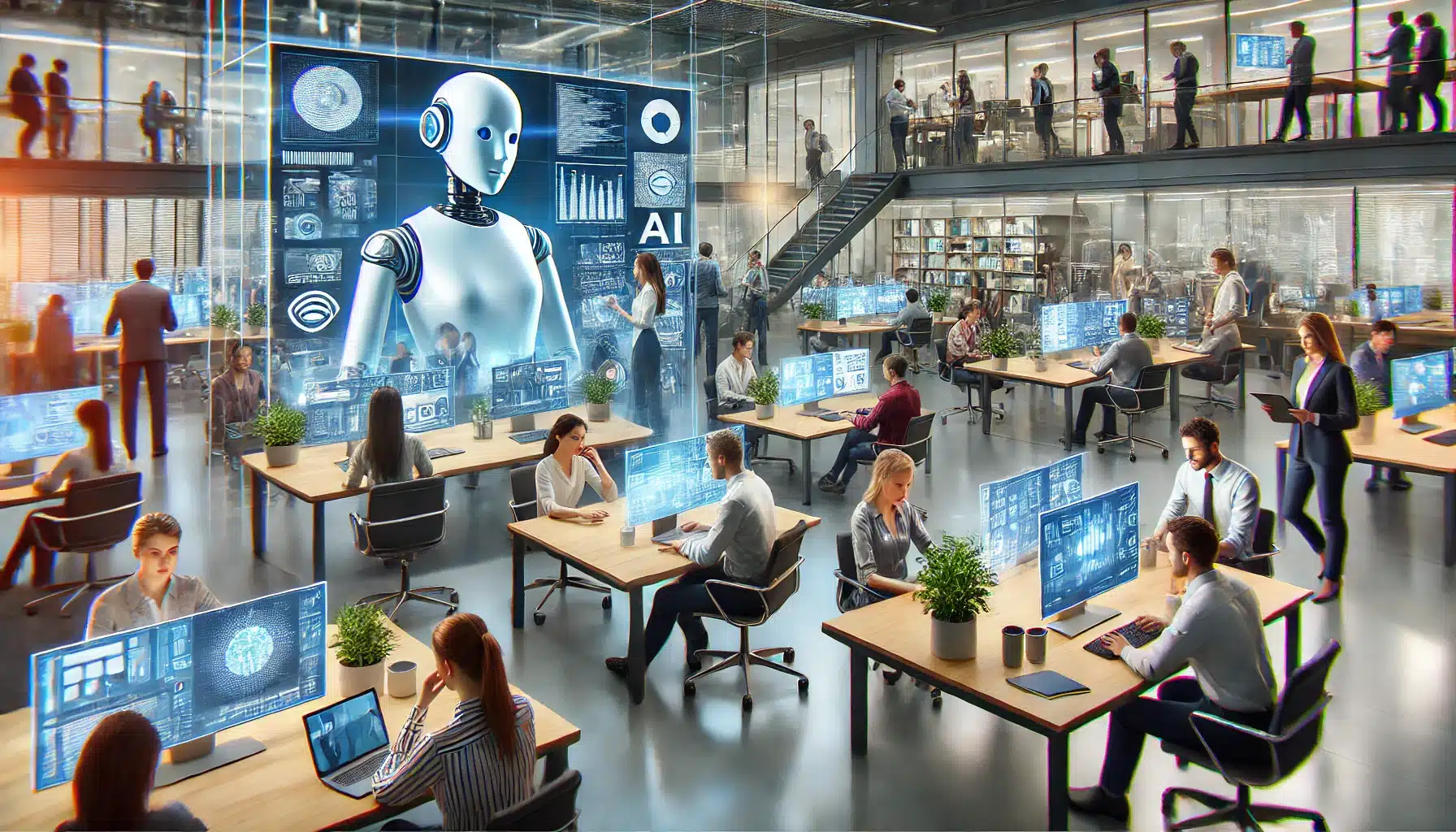The future of work is here, and it’s driven by artificial intelligence (AI).
According to the Adecco Group’s Global Workforce of the Future Research 2024, AI is transforming industries worldwide, presenting both challenges and opportunities.
The study, which surveyed 35,000 workers across 27 countries, offers a detailed look at how businesses and employees can prepare for an AI-driven world.
The Impact of AI on Workplaces
AI’s presence is growing rapidly, reshaping how businesses operate and how employees approach their roles.
It’s clear AI isn’t just a buzzword – it’s a game-changer. Here are the key findings from the Adecco Group’s research:
Increased Demand for Adaptability
- Workforce evolution: AI is altering job responsibilities. Many roles are shifting, with automation taking over repetitive tasks, while humans focus on more complex, creative aspects.
- Skill upskilling: There’s a strong demand for upskilling. 71% of workers believe AI can enhance their productivity, but only with proper training.
- Job disruption: Despite the potential for AI to create new job opportunities, many workers fear their positions may be replaced by automation.
Emphasis on Lifelong Learning
- Reskilling is essential: As new technologies emerge, businesses and workers must embrace continuous learning. Workers who actively reskill are better positioned for future success.
- AI training programs: Companies are increasingly offering AI and tech training programs. These programs are not only for tech-specific jobs but for all roles across industries.
A Shift Toward Hybrid Work Models
- AI in remote work: AI is enabling businesses to adapt to hybrid and remote work models. With the right tools, employees can collaborate effectively from anywhere.
- Employee autonomy: AI also offers more flexible work arrangements, allowing employees to have more control over their schedules and work environments.

The Need for Employer Support
While workers acknowledge AI’s potential, they also express concerns about its impact on their roles. The report highlights the importance of businesses supporting their employees through the AI transition.
Employer Responsibility
- Creating AI-friendly cultures: Companies must create an environment where AI is seen as a tool to enhance human work, not replace it.
- Employee support: Workers need assurance that their jobs are secure and that they’ll have access to training to help them adapt.
- AI leadership: As AI becomes more integrated into the workplace, businesses should have leaders who understand its potential and limitations.
AI-Driven Collaboration
AI isn’t replacing workers, but rather collaborating with them.
AI tools are being used to help employees work smarter, not harder. From automating administrative tasks to providing insights, AI enhances human decision-making.
Building a Future-Proof Workforce
The global workforce is on the cusp of a massive transformation. To stay ahead in this AI-driven world, businesses must take the following steps:
Invest in AI Education
- Encourage continuous learning and offer resources to upskill employees in AI and other emerging technologies.
Foster a Culture of Adaptability
- Emphasize flexibility and open-mindedness in the workplace. This mindset will help workers feel more secure and confident in the face of change.
Create AI-Supportive Roles
- AI won’t replace human jobs entirely. Instead, businesses should focus on creating roles where humans and AI collaborate. For example, positions like AI trainers or specialists will become more common.
Support Employee Wellbeing
- As work becomes more AI-driven, it’s important for businesses to consider the mental health and wellbeing of employees. Automation can increase stress if not handled properly, so it’s crucial to balance AI integration with employee support systems.
Need Career Advice? Get employment skills advice at all levels of your career
Looking Ahead: What’s Next for the Workforce?
The integration of AI into the workforce is just beginning, and its influence will continue to grow. For both businesses and workers, the future lies in embracing change, developing new skills, and fostering a collaborative relationship with AI.
The workforce of tomorrow will need to be tech-savvy, adaptable, and lifelong learners. Companies that recognize this shift early and invest in both their technology and people will lead the way in building a future-proof workforce.
As AI continues to evolve, workers must prepare to evolve with it. Embracing AI is not just about staying relevant – it’s about shaping a smarter, more efficient future.




